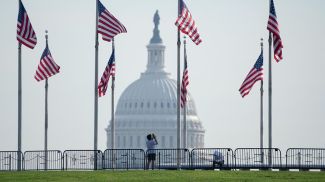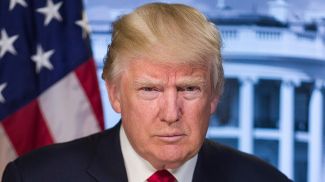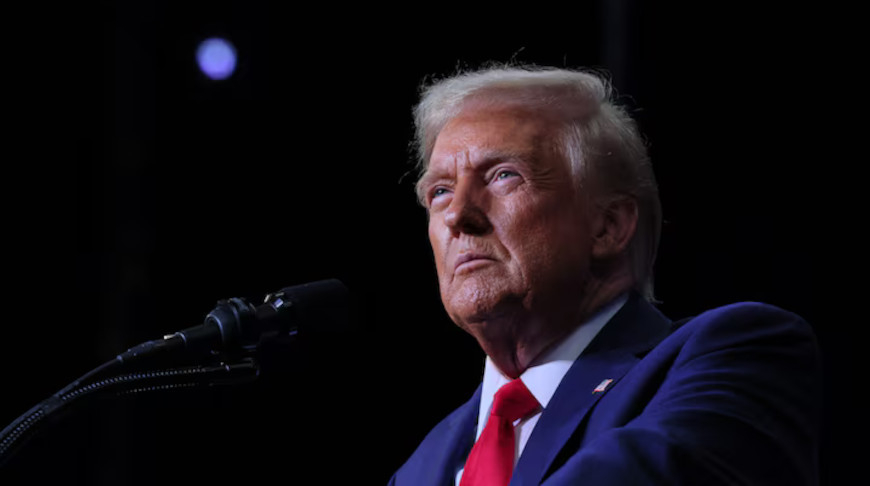
Donald Trump. Photo courtesy of AP
The U.S. presidential election has just ended, but the name of the winner may not be known for a while yet. Technical failures and voting by mail traditionally delay the ballot count results. The counting of votes is followed by recounts and then lawsuits. For the USA, these are familiar and almost obligatory things. The U.S. media, however, have already started publishing the first forecasts, bookmakers are taking bets, while the authorities are preparing for civil unrest.
Joe Biden's administration will hide from street democracy behind an eight-foot-high metal fence, and the National Guard is on standby in a number of states. And, apparently, there is much to fear. Exit polls indicate that voters are angry with the policies of the current administration. Over the four years since the storming of the Capitol, this anger seems only to have intensified, and the division in American society has become even more obvious.
Media and betting markets swing hard to Trump. How the election in the USA unfolded
5 November was the main voting day of the U.S. general elections. U.S. voters were choosing not only the future president of the country, but also the vice-president and congressmen - 33 members of the Senate and 435 members of the House of Representatives. This day also saw the elections of governors in 11 states and two territories.
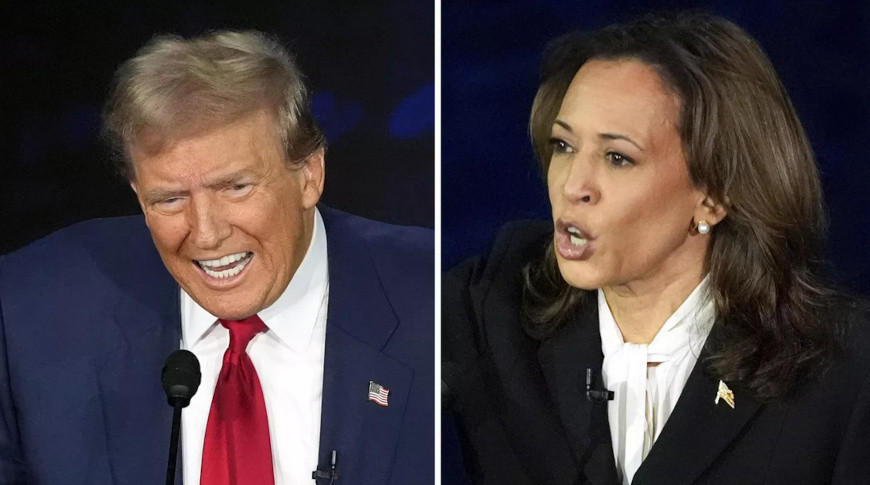
As it is known, in the USA the victory of any presidential candidate is determined by electoral colleges, which are formed according to the results of voting in each separate state. To win, a candidate needs to get the votes of 270 out of 538 members of the electoral college. The rules are that the candidate with the most electoral votes in a given state also gets all the electoral votes. However, sometimes this system fails and there are those who ignore the will of the electors and cast their vote for another candidate. This practice causes fierce disputes in the USA, and sometimes it comes to the courts.
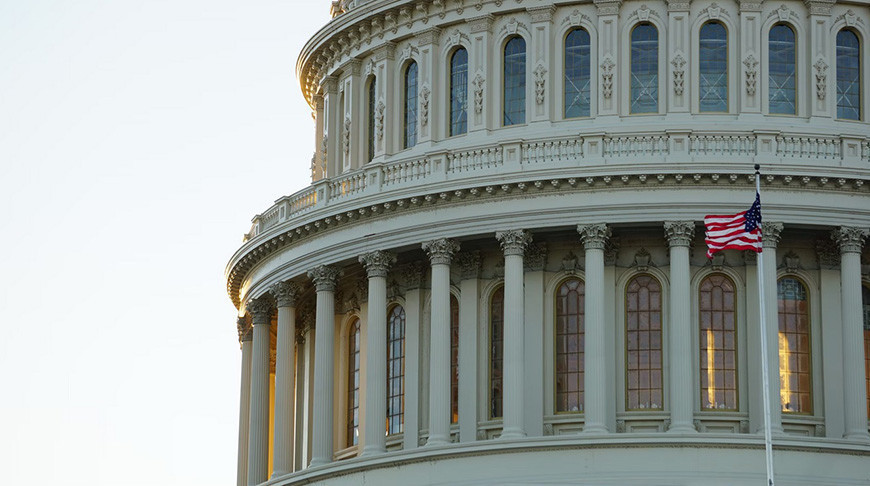
Equally controversial is the process of early voting in the USA, where citizens send ballots by mail. This leads to a number of incidents of ballots being lost or misdirected, as well as to allegations of election fraud. Vote by mail ballots can also cause significant delays in the counting of votes. In some states, for example, ballots are accepted for several days after the election, provided they were mailed in a timely manner.
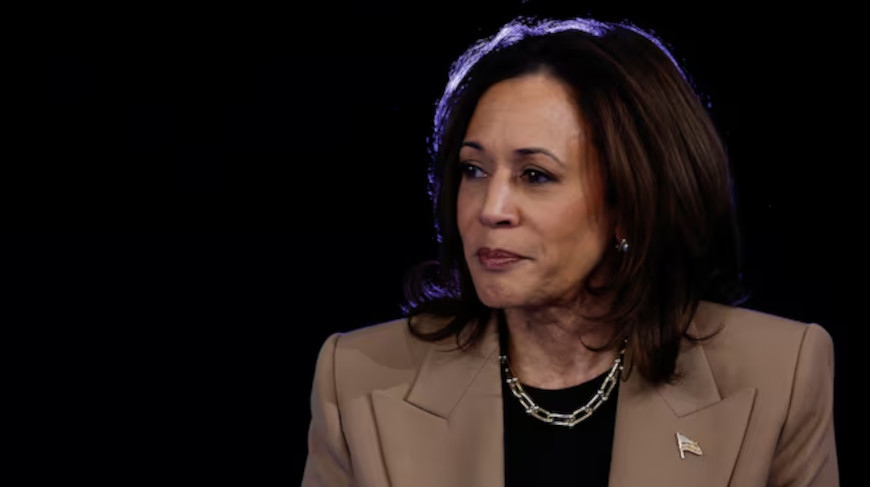
Nearly 83 million voters cast early ballots in this year's general elections, including 37.7 million who voted by mail. Among them was Democratic candidate Kamala Harris. “I have my ballot on its way to California. I am going to trust the system that it will arrive there,” the politician said.
Kamala Harris's rival in the election, Donald Trump, decided to vote on the main election day, coming to the polling station in Palm Beach, Florida. Speaking to the media, the Republican said he was confident of his victory, but was ready to admit defeat if the majority of Americans voted for Harris. According to the Republican, the elections have so far been held fairly. But, he expressed dissatisfaction with delays in the work of computer systems that count votes. Trump noted that counting paper ballots is sometimes faster.
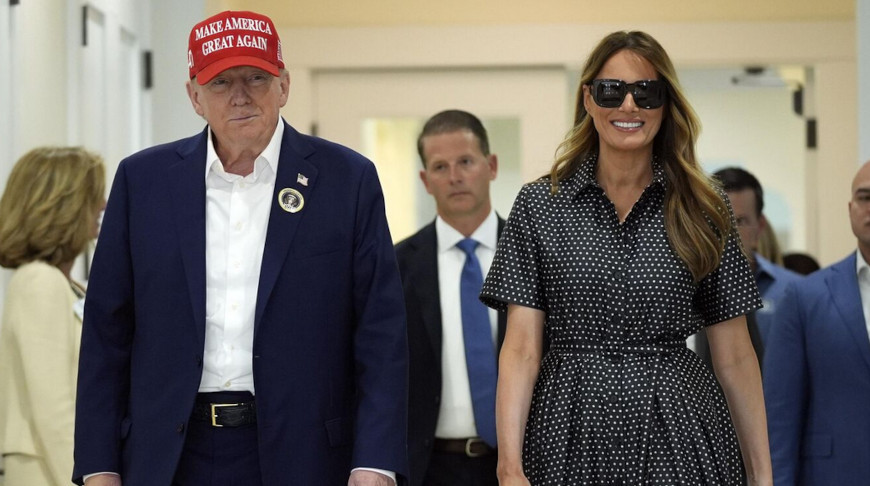
Many U.S. media outlets also drew attention to technical problems at polling stations in a number of districts. For example, the Associated Press reported that voting machine malfunctions in the state of Iowa could prolong vote count.
Similar problems were reported in the state of Pennsylvania. After that, Trump, who previously talked about fair elections decided to change his tone and claimed massive cheating in Pennsylvania. "A lot of talk of massive cheating in Philadelphia [Pennsylvania]. Law enforcement coming!" the politician wrote on the social network, Truth Social. The Philadelphia police did not confirm the information about the election fraud.
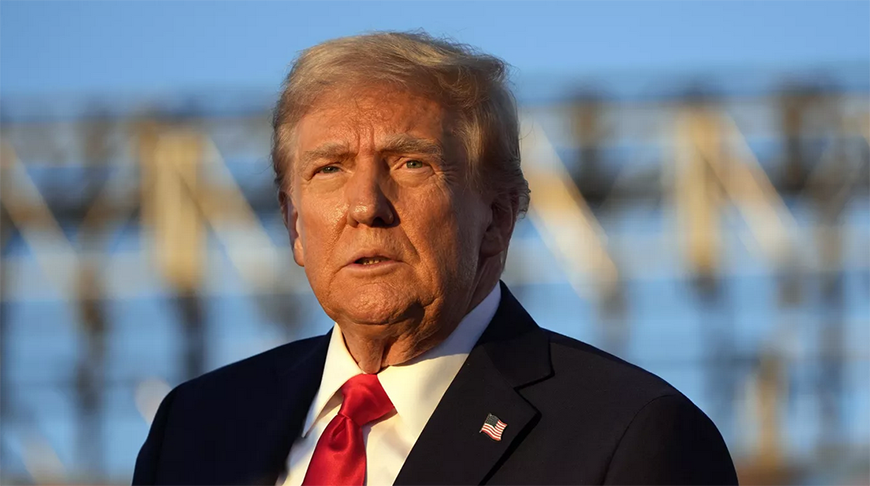
The city of Milwaukee (Wisconsin) seems to have decided to play safe. According to The New York Post, they are going to recount about 30,000 ballots as a precautionary measure. The decision was made after an observer noticed that the panel doors on the city’s 13 tabulators were not properly closed.
Sometimes technical failures were surprisingly selective. For example, the Google search engine for some reason stopped displaying the addresses of polling stations to the users who wanted to vote for Trump. Interestingly, such a “failure” did not affect Harris voters.
This year’s campaign did not go without reports of bomb threats. Fortunately, all of them were false. According to the CBS television company, a total of about 30 calls were received about a bomb threat at polling stations. In some cases, the voting process had to be stopped while law enforcement officers checked the buildings.
In addition, the U.S. Capitol police arrested a man who was trying to enter the building with a flare gun and a torch. However, the police believe that the incident has nothing to do with the elections. Rather, it has to do with the United States' actions in the Palestinian-Israeli conflict.
In any case, none of the incidents had a significant impact on the voting process. The vote counting is in full swing now. The media provide information about the distribution of votes are by state. According to the Associated Press, Trump is leading with a significant advantage. He has 230 electoral votes, while Harris has 210.
According to estimates from The New York Times, The Washington Post and Fox News, and Axios, Trump has a margin of victory in six of the seven swing states. The New York Times predicts Donald Trump has a minimum 75 per cent chance of winning.
Betting markets put Trump's chances of winning at 95%. In recent hours, this figure has risen by more than 30%.
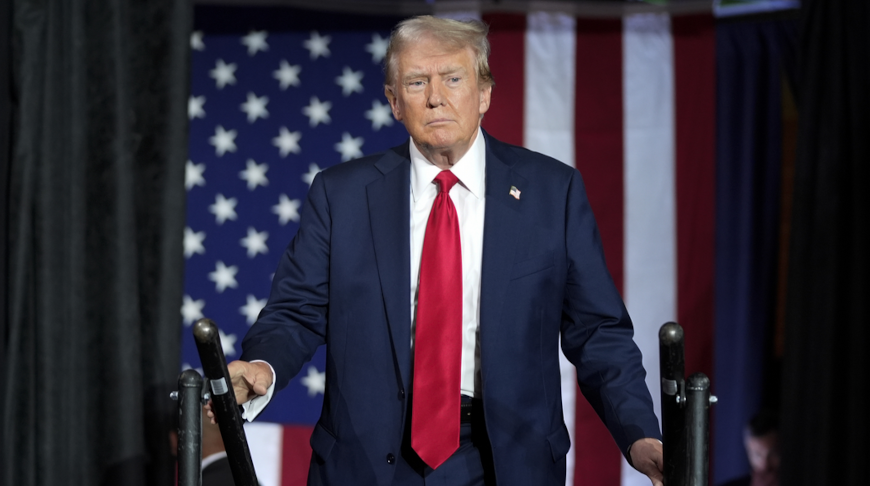
However, it is worth recalling that this is forecast information, and official data has not yet been received.
By the way, this time very few tried to predict who would win the presidential election. Opinion polls ahead of the election day showed almost equal chances for the candidates. Thus, in the final NBC News poll, Harris and Trump received support from 49% of registered voters each. However, the results of a poll conducted by PBS News TV channel were released next. It showed a 4% lead for Harris.
During the election campaign in the USA, one could repeatedly hear that the victory of one or another candidate would be determined by the swing states. The fact is that one part of the U.S. states traditionally votes for Republicans, the other - for Democrats. There are also states where candidates from both parties enjoy approximately equal support. These are Arizona, Georgia, Wisconsin, Nevada, Michigan, North Carolina and Pennsylvania. These are the swing states that Harris and Trump have largely been fighting over in recent months.
Under U.S. law, election results must be officially certified at the state level by 19 December. Congress must approve the results of the electoral college vote on 6 January 2025. The inauguration of the new president is scheduled for 20 January.
People are angry. What did the exit polls show?
After the voting, CNN and NBC released the data of their exit polls, in which voters were asked to assess the state of affairs in the United States. It turned out to be quite an interesting picture.
Thus, NBC exit poll showed that about three-quarters of voters nationwide felt negatively about the way things were going in the country, with 43% saying they were dissatisfied and 29% saying they were angry.
In addition, a third of respondents believe that democracy in the United States was threatened. Also, the majority were dissatisfied with the situation in the nation’s economy.
The CNN exit poll showed that a large percentage of Americans were unhappy about the U.S. economy. Thus, 35% of respondents said that the state of the economy was not very good, 32% considered it bad.
More than half (53%) of respondents mentioned high inflation. Some 45% of Americans believe their financial well-being has worsened over the past four years.
Dissatisfied or angry about the state of affairs in the U.S., according to the CNN poll, are 72% of voters. The numbers are one-to-one with NBC's data: 43% of those polled are dissatisfied and 29% are angry.
The actions of Joe Biden as President of the United States are disapproved of by 58% of voters.
Not to let democracy “go to streets”. What are the authorities preparing for?
The White House is well aware of the discontent and anger of American citizens. However, the Biden-Harris administration does not intend to let democracy “go out” on the street. Therefore, the authorities were preparing for the elections in the country as for war.
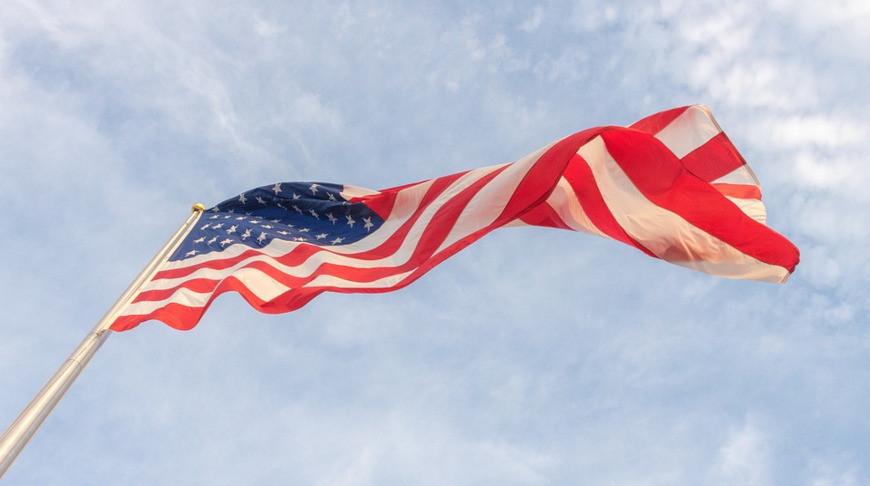
“Drones, snipers, razor wire, sniffer dogs, body armor, bulletproof glass… These are not the contents of a shipment to frontline troops fighting in Ukraine. This is a list of the security measures election officials in counties across the US have had to implement ahead of Tuesday’s vote,” the American magazine Wired wrote. The publication called the US authorities' preparations for the main voting day “the militarization of the elections”.
Over the past few days, Americans could see metal fences erected around the White House, the Capitol and the Treasury Department, as well as Lafayette Square, the Naval Observatory and Kamala Harris' home in D.C.
The D.C. Police Department said that on post-election night near Howard University, where Harris and her team will be staying, police will close off nearby streets, close parking areas, and public transportation will be rerouted.
Even more impressive security measures have been taken at polling stations in some states. They were surrounded by barbed wire, snipers were positioned on the roof, and drones were flying around the buildings. The only thing missing for the big picture was tanks. Although the National Guard was mobilized in some states.
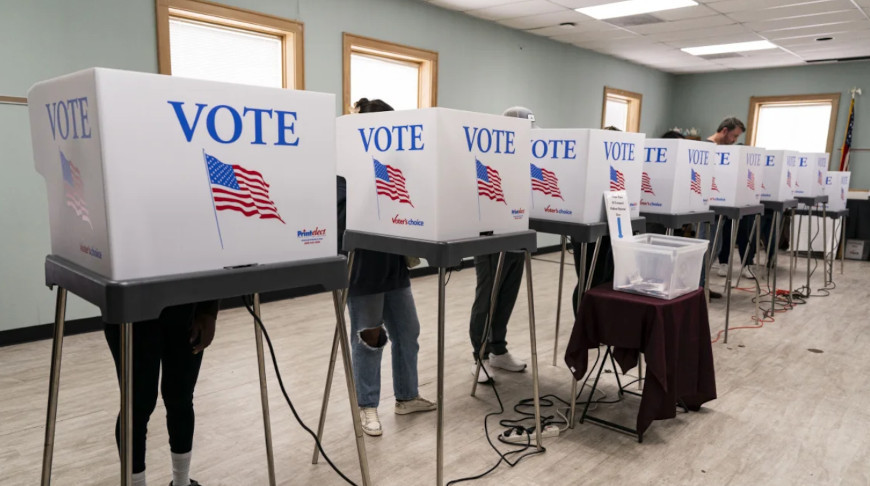
According to D.C. Police Chief Pamela Smith, members of the Metropolitan Police Department, as well as all D.C. government agencies, are prepared for any development. “I want to be very clear: We will not tolerate violence of any kind. We will not tolerate any riots. We will not tolerate the destruction of property. We will not tolerate any unlawful behavior. Offenders will be arrested and will be held accountable," Pamela Smith warned.
Civilians were also preparing for a post-election “night of judgment”. In Washington, owners of office buildings, stores, hotels, and cafes boarded up windows on the first floor and blocked doors in anticipation of possible looting and unrest.
Residents of Washington, D.C., who watched the scene compared what was happening in the city to a dystopia of fear and anxiety. “Seeing temporary fencing go up around the White House and other nearby government buildings is feeling a little dystopian. It will be an interesting week,” Grant Hawkins told NBC News.
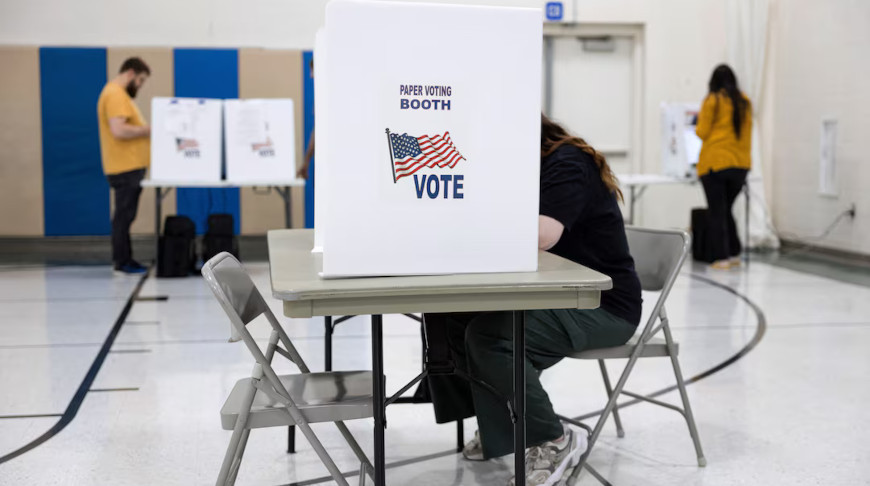
Military analyst, editor-in-chief of Analisi Difesa Gianandrea Gaiani said to TASS that the U.S. elections could lead to large-scale protests and unrest. “The USA may face a period of internal instability, with protests in case Donald Trump wins, which may be larger in scale than in case Kamala Harris is elected,” he said. He explained that the U.S. voting system makes the parties suspect each other of fraud and gives an excuse to challenge the results.
The Washington Post also reported on possible post-election unrest. According to it, such a development is possible if Trump loses. At the same time, the publication predicts the emergence of some localized conflicts in different parts of the United States. These will be small hotbeds, but they are capable of setting the whole country on fire.
Waiting for Donald. How is the U.S. election perceived abroad?
After Trump announced his intention to run in the election, the U.S. allies from Europe shuddered without exaggeration. Western media rushed to paint a gloomy picture of a future in which Trump refuses military support for Kiev, shifting the burden of responsibility onto the shoulders of the Europeans, and launches a full-scale “tariff war” against the European Union.
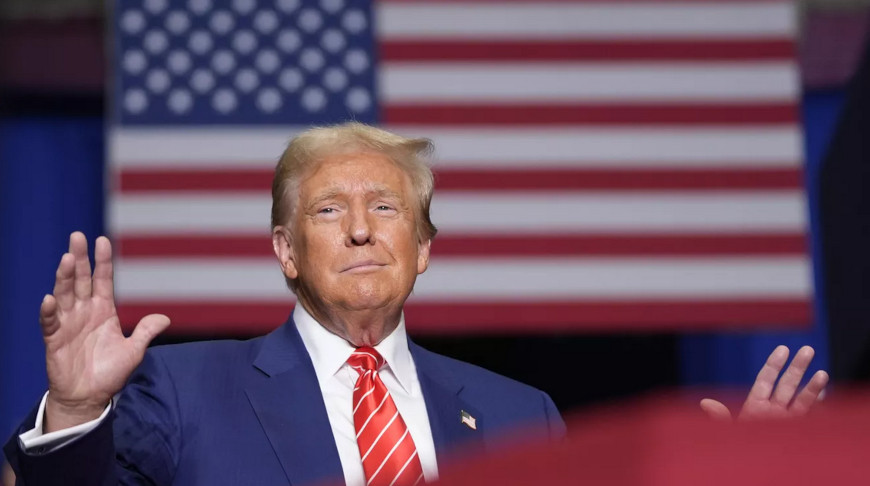
Of course, this was not a widespread narrative. Hungarian Prime Minister Viktor Orban, for example, clearly sympathized with Trump. But he was in the minority.
Regarding the U.S. election, Orban said that its outcome would be of great importance for the European Union. The Hungarian prime minister recognized that the EU's foreign policy is subordinated to U.S. interests. That has led to economic problems in European countries and has also dragged the EU into the Ukrainian conflict. “The question is whether this course will continue or whether there will be major changes that will let us stick more firmly to our interests. We will be able to know more about it already tomorrow,” Orban said.
Andrej Babiš, former Czech prime minister and now head of the opposition ANO movement, spoke in favor of Trump, too. In his opinion, Trump is capable of resolving the Ukrainian conflict. “I believe in his promise to end the conflict in Ukraine. When he was the U.S. president, there was no war,” Andrej Babiš said.
In Poland, on the other hand, Donald Tusk's government has made a bid for Harris. In this regard, the Polish opposition called on the prime minister to resign if Trump wins. Otherwise, the new White House owner may turn his back on the Poles. In fact, the expert community had previously predicted that Hungary, not Poland, would become the number one ally in Europe for the White House if Trump wins.
Meanwhile, EU heads of state and government are preparing to discuss further relations with the USA at a meeting in Budapest on 7 November. Now the EU countries are trying to develop a common position with regard to the USA. It is likely that Hungary, which has been so fiercely criticized in European capitals in recent years, will be entrusted with the role of mediator in relations with Washington.

Canada, which neighbors the USA, has said that it is ready for any outcome of the U.S. elections. They have made diplomatic preparations in advance and are ready to cooperate with any elected president.
The government of Japan called the U.S. elections an internal affair of the country and refused to comment. However, Tokyo has noted that it considers the alliance with the USA as the basis of its foreign and security policy.
Beijing expects Washington to adhere to the principle of mutual respect and strive for stable development of bilateral relations regardless of the outcome of the U.S. presidential election, Liu Pengyu, spokesperson for the Chinese Embassy in the United States, told TASS.
At the same time, Wu Xinbo, Director of the Center for American Studies at Fudan University, believes that China-USA relations could deteriorate significantly if Trump is elected. “If Trump wins, it will hit China-USA relations harder, especially in the economic and trade sector. Trade and economic ties between the two countries could be seriously affected,” Wu Xinbo said. He has also noted that the radical “hawks” surrounding Trump are likely to test China's red lines on the Taiwan issue, in which case the likelihood of crisis and conflict between China and the USA will increase significantly.
If Harris wins the presidential election, China-USA relations will maintain the current format, Wu Xinbo said. “Under Harris, the USA will still focus on containing and suppressing China, but at the same time, it will also seek limited cooperation to prevent major conflicts and a major crisis,” the expert pointed out.
Russian Foreign Ministry spokeswoman Maria Zakharova has said that Russia does not care about the outcome of the U.S. election, given the bipartisan consensus in the United States on confronting Russia. “If Washington's policy shifts after the election, Russia will be ready to consider any U.S. proposals that do not contradict its interests. In any case, Russia will firmly defend its interests, particularly when it comes to national security. It would be logical for whoever is in the White House, regardless of who they are, to focus on the challenges within their own country rather than creating problems thousands of miles from America’s shores,” Maria Zakharova said.

The Russian diplomat also wished the American people to overcome the crisis of democracy and the split in society.
'Garbage' ideology. What kind of division is here?
Perhaps the talk on this topic began in earnest after the infamous storming of the Capitol on 6 January 2021. Even though it took place before Joe Biden's inauguration, it had an impact on the entire subsequent electoral cycle in the United States.
As former U.S. President Bill Clinton correctly pointed out, the storming of the Capitol by Trump supporters reflected a radical division of public opinion in the United States. Overcoming this division has subsequently failed. Rather, it has done the opposite. The polarization of the U.S. society has only intensified.
Some would say that the blame for this lies entirely with Trump, who did not recognize his defeat in the 2020 election and promised to take revenge. In fact, the causes of polarization lie much deeper. They stem from the domestic political, economic, social and even historical realities of the USA.
For the past four years, the Biden administration has seen Trump as a threat to its power, seeking to block it in every possible way. They tried to “cancel” the former president, sue him, and even kill him. For lack of evidence, we will not accuse anyone in the latter, of course. Nevertheless, the more the political system fought Trump, the higher the former president's approval rating rose and the faster his merch was sold.
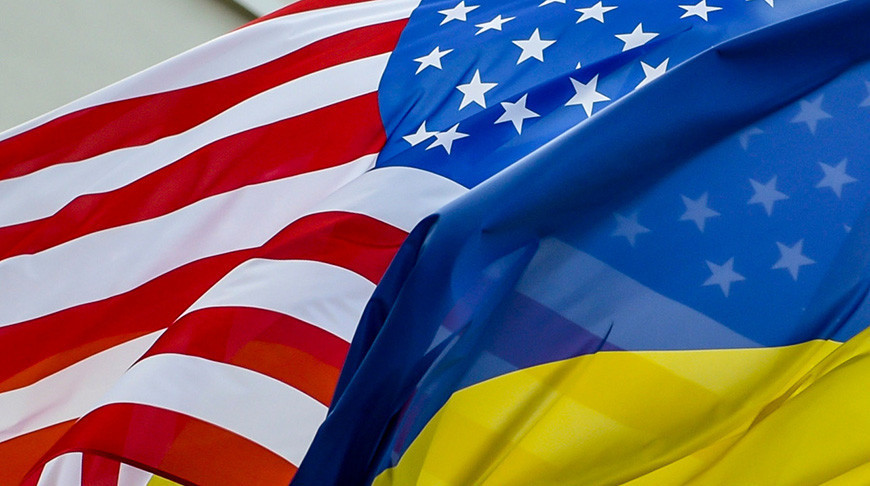
Many have wondered why Americans are willing to vote for a man who has criminal cases pending against him. Sometimes a small slip-up is enough to put an end to a politician's career. So what is Trump's gimmick? Probably for Americans he is not just a politician. At one point, Trump became a kind of symbol of American society's dissatisfaction with the political system in the United States.
In an effort to “cancel” Trump, the Biden administration, in fact, “canceled” the part of society that tried to fight for their rights, causing even more resentment among people. It is worth noting here that we are actually talking about half of the U.S. population, if we look at the percentage of support for Trump among voters.
This “cancelation” policy culminated in Biden's recent statement in which the U.S. leader called Trump supporters “garbage.” A greater disregard for his people is hard to imagine.
In the midst of the election campaign, Biden ceded the head of state nomination to his Vice President Harris. In her campaign speeches, she repeatedly emphasized the need to maintain harmony and unity in society. It seems however that Harris has failed to give her boss any sound advice in this regard over the past four years.
What did it turn into? Into fences around the White House and Capitol, barbed wire and snipers on the roofs of polling stations. It is hard to believe that Harris, if she wins, will be able to overcome the divisions in society. However, this will not be an easy task for Trump either.
It is obvious that during the current election campaign, the battle was not between individual candidates, but by and large between Trump's supporters and opponents. Therefore, even if Trump wins, he will come to power with an impressive anti-Republican rating. Will he be able to turn the tide? He may. But to do so, he will have to prove to Americans that his decision to return to the White House is not due to personal ambitions and the desire for revenge, but to his intention to do at least something for his country.
Photos courtesy of Reuters, АР, ТАСС, Bloomberg, Pixabay




